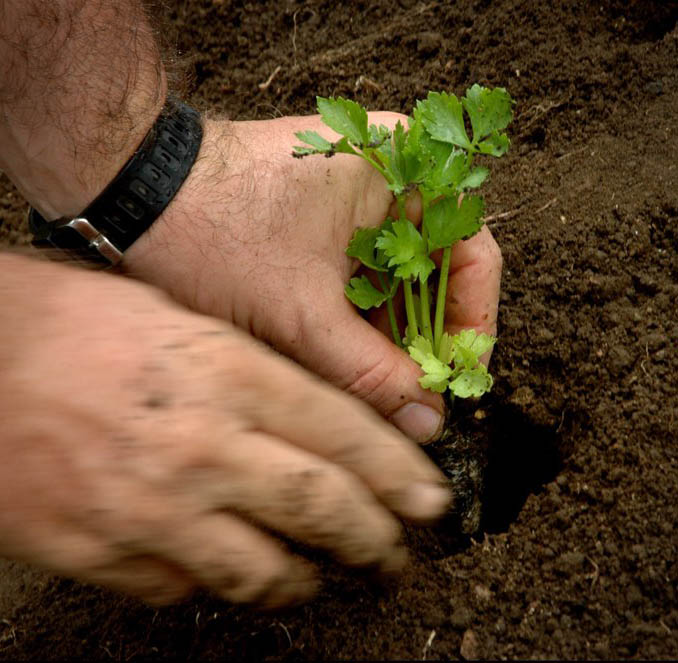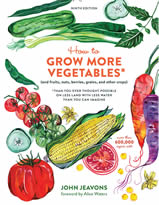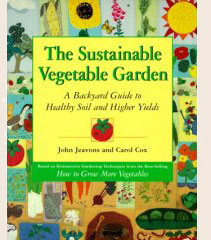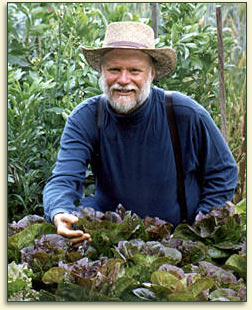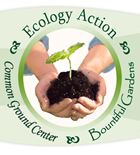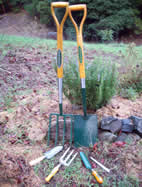A 2-Week Course in Productive Biointensive Farming!
- About the
Program
- Schedule
and Curriculum
- Teacher
Bios - Program
Application - Food and
Lodging
2-Week GROW BIOINTENSIVE
Sustainable Farmer Training and Crop Production Course:
2014 Session
Applications for the 2014 training program are now being accepted:
Classes will start January 6 and end January 18, 2014
Application Deadline: EXTENDED TO DECEMBER 31, 2013
This 2-week course will be an opportunity to learn valuable GROW BIOINTENSIVE techniques, to experience an alternative living style, to make lifelong ties with other participants from different states and countries.The program will be a combination of lectures, study and garden work. Once participants have completed this course it is hoped they will become successful farmers, building sustainable food security in communities across the country and around the world.
INTRODUCTION
The world is currently facing a series of environmental and humanitarian challenges that include climate change, soil depletion, water shortages, overpopulation, peak oil and a shortage of farmers. All of these challenges impact the effectiveness and sustainability of the food supply chain that the majority of Americans and urban dwellers around the world have come to rely upon for their food: a chain that has become dependent on large-scale, industrialized, chemical-based, conventional agriculture, and the fossil-fuel intensive fertilizers, pesticides, processing and transportation methods that make them possible.
To address these challenges it is necessary to for a farmers to learn to use sustainable, smaller-scale farming methods that will allow them to increase yields while conserving resources and minimizing environmental damage. Farmers educated in these methods will have skills that allow them to thrive in both rural and semi-urban farming environments, and will provide a solid foundation for creating resilient local food webs that can survive challenges and foster community spirit better than industrialized mega-farms.
THE PROGRAM
Ecology Action is offering a unique 2-week training program to teach farmers to use the GROW BIOINTENSIVE (GB) Sustainable Mini-Farming method, which will allow them to attain high yields at low cost, while conserving resources and building soil fertility. The program leverages Ecology Action’s 40+ years of experience in GROW BIOINTENSIVE agriculture, which includes access to a group of exceptional Master Farmers from the US, Africa and Latin America.
GROW BIOINTENSIVE mini-farming techniques, when properly implemented, have the potential allow farmers to:
- Use 67% to 88% less water than conventional agricultural methods.
- Use 50% to 100% less purchased (organic, locally available) fertilizer.
- Use up to 99% less energy than commercial agriculture, while using a fraction of the resources.
- Produce 2 to 6 times more food at intermediate yields, assuming a reasonable level of farmer skill and soil fertility (which increase over time as the method is practiced)
- Produce a 100% increase in soil fertility.
- Reduce by 50% or more the amount of land required to grow a comparable amount of food.
The program will take place in Willits, CA from January 6th – January 18th, 2014. Participants will learn practical skills that address issues of sustainability and soil fertility that affect market farmers, through a combination of hands-on fieldwork and classroom teaching. The techniques taught will be a closed system, soil building, organic approach to food production; in addition, participants will learn about positive social solutions to food insecurity. Because the GB method is well suited for use in rural and semi-urban smaller-scale farming environments, this program will help farmers address the growing interest among businesses and consumers in using food sourced as locally as possible, produced using organic and sustainable methods.
The program will be led by a group of 5 Master Farmers ( Ecology Action Director John Jeavons, ECOPOL Director Juan Manuel Martinez, G-BIACK co-Director Samuel Nderitu, Agroecology Professor Steve Moore, and Soil Specialist John Beeby) at a site in Willits, CA, near Ecology Action’s headquarters. The training will give participants an education encompassing aspects of building and maintaining soil fertility, growing food, and developing a strong community, with a primary focus on learning the GROW BIOINTENSIVE method for building productive, sustainable food and market farms.
To broaden the impact and reach of this program, the teaching sessions will be filmed, and developed into a seminar series to be presented online (translated into multiple languages). This will provide an efficient means to distribute the information to as many people as possible; it will exponentially increase the positive effect the Master Farmers’ expertise can have, allowing people across the globe to access to information that can help them create solutions to the challenges facing us all.
Program participants should note that they will be required to sign informed consent waivers to use their images in the production of the seminar series without further compensation; if you are not comfortable with the idea of being filmed, then this program is probably not appropriate for you.
EXPENSES
Applicants should note that this is an unpaid, fee-based program. Housing and food will be
provided at each site; however, other expenses will need to be provided by interns who are accepted to the program, as follows.
(Please
note that these course fees are non-refundable)
Item
Fee
Description
Tuition and Fees $2,500 Per person, participation in 2-week training program NOTES:
- Tools, supplies and course manual are provided to each participant.
- Participants are responsible for purchasing other required reading materials
- Housing, food, incidental and traveling expenses associated with getting to and from the program are the responsibility of each participant (there are several good hotels, restaurants, campgrounds and markets in Willits, CA).
If you have questions about expenses please email contact@growbiointensive.org
To fill out an application for the program, click here.
Program Information
For a full course description, click here to download the syllabus.
The two-week farmer training program will immerse participants in all aspects of biologically intensive food raising. Participants will learn practical GROW BIOINTENSIVE Sustainable Mini-Farming skills through their involvement in day-to-day farm work. In the classroom, they will learn about and discuss growing techniques and concepts, global and local issues on urban food needs, sustainability, and marketing issues, and why it is important to farm sustainably. For more information about the GROW BIOINTENSIVE method click here.
By the end of the program, participants will have gained hands-on experience and an understanding of the designing, planning and management of a small-scale biologically intensive mini-farm including an aim towards developing into successful - and sustainable - market farmers.
The program will include presentations, demonstrations, hands-on practice, and guided discussions; the training sessions will be filmed to produce an online seminar series.
The GROW BIOINTENSIVE method focuses on using small-scale, organic, non-mechanized foodraising
techniques as a way of life. The work we do requires commitment, responsibility, patience,
attention to detail, willingness to follow detailed instructions, self-motivation, and mental and
physical stamina. While we do not wish to discourage those genuinely interested in the program, we
also want to make sure that applicants have an adventurous, hardy nature and can make a dedicated
commitment to the program.
The program will start on the 6th of January and will end on the 18th of January. Participants must arrive at
least 1 day in advance at each site to get settled and acquainted with the area.
Classes are from 9 a.m. to Noon and 2 p.m. to 5 p.m. with two hours off for the mid-day meal.
Curriculum
During the course of the program the topics being covered will include::
The Theory and Principles of GROW
BIOINTENSIVE |
Social issues of small-scale farming and
food security: |
|
|
Participants will have several books and publications that they will use for readings and design projects. By the end of the program they will have created their own design for a mini farm.
For a full course description, click here to download the syllabus.
Teachers
- Primary Trainer: John Jeavons is known internationally as the leading researcher and method developer, teacher, and consultant for the GROW BIOINTENSIVE method. He is the author of the best-selling book How to Grow More Vegetables, Fruits, Nuts, Berries, Grains, and Other Crops Than You Ever Thought Possible On Less Land Than You Can Imagine (Ten Speed Press), which has gone into eight editions in seven languages, plus Braille. There are over 550,000 copies in print worldwide. He has authored, co-authored or edited over 40 publications on this high-yielding, resource-conserving Biointensive approach, including a five-part, peer reviewed article that appeared in The Journal of Sustainable Agriculture. Jeavons’ food-raising methods are being used in over 140 countries and by such organizations as UNICEF, Save the Children, and the Peace Corps. Jeavons advises students, teachers, gardeners, local producers, and representatives of private, non-profit and governmental organizations, and is interested in cross-cultural exchange of agricultural methods globally. The comprehensive and sustainable cropping system developed by Jeavons enables people in all regions of the world to grow a balanced diet on a small plot of land. Former U.S. Secretary of Agriculture Bob Bergland said of his work, “There are probably a billion people in the world who are malnourished. The Jeavons approach could enable that segment of the population to feed itself adequately for the first time ever. That would be a remarkable development in this world, and would do more to solve the problems of poverty, misery and hunger than anything else we’ve done.”
- Lead Trainer 1: Steve Moore is an Assistant Professor of AgroEcology, Elon University, Elon NC, and has successfully farmed for over 40 years in Pennsylvania and North Carolina. He holds a Masters Degree from NC State University and has over 15 years of experience with GROW BIOINTENSIVE, is a member of the board of directors of Ecology Action, has been a member of the board of Directors of PASA (Pennsylvania Association of Sustainable Agriculture) and Farm Manager at the Center for Environmental Farming Systems (CEFS) at North Carolina State University. He has special expertise in farming and food system energy use, intensive agriculture and protected production. He is an Associate Editor for the peer reviewed Journal of Renewable Agriculture and Farming Systems. He has lectured and consulted widely, including coordinated teaching of GROW BIOINTENSIVE workshops with John Jeavons.
- Lead Trainer 2: Juan Manuel Martinez-Valdez is the director of Ecología y Población, (ECOPOL), Ecology Action’s nonprofit affiliate in Mexico and Central and Latin America for over 20 years. ECOPOL teaches families to raise food Biointensively. As a result of ECOPOL’s initiatives Biointensive agriculture has gained a secure foothold in most Latin American countries, with sustainable food-growing techniques being conveyed to non-profit organizations, trainers, food producers, smallholder farmers and indigenous people. It is estimated that millions of family-scale farmers have benefited from this training, increasing yields and income, improving health, and greatly decreasing the quantity of external inputs (including water and imported fertilizers) needed to successfully grow food.
- Lead Trainers 3 and 4: Samuel Nderitu and Peris Wanjiru Nderitu are the Co-directors of the GROW BIOINTENSIVE Agriculture Center of Kenya (G-BIACK), one of Ecology Action’s African affiliate programs. Both are graduates of the 2-Year Biointensive Training Program provided by another of Ecology Action’s African partners, Manor House Agricultural Centre (MHAC) in Kenya. Samuel is an expert in Biointensive agriculture, with a primary focus on community development. Samuel and wife Peris (also a MHAC graduate) founded G-BIACK in 2008 as a community based organization. Since then they have expanded what was once a small farm into a thriving demonstration and training center for Biointensive agriculture and sustainable community development among thousands of small scale farmers in the Central, Eastern, and Nairobi provinces in Kenya. As a result of the these efforts, an inspirational ripple effect is being created as farmers around the region learn to grow more food, build soil fertility, conserve resources and create community food security. They have taught thousands of people in Kenya and across Africa. Most recently, they initiatives in South Sudan under the auspices of the USDA and the Borlaug Foundation; in Malawi and Rwanda with support from Buddhist Global Relief; and in Tanzania with support from Ecology Action members.
- Lead Trainer 5: John Beeby has studied soil fertility for over 20 years and is currently pursuing a M.Sc. at Cornell University on the potential of biochar to reduce arsenic toxicity in soils. A former Ecology Action staff member, John is an expert in Biointensive agriculture and sustainability, Ecology Action’s main soil fertility advisor, and the creator of Harvest Planner, a unique online program which helps farmers plan and grow nutritionally complete diets sustainably. He is the editor of From The Field, associate editor of the journal Renewable Agriculture and Food Systems (Cambridge Press) and author of several publications, including the books Future Fertility and Test Your Soil With Plants! He is currently working to catalyze a website to share GROW BIOINTENSIVE teaching materials, developing experiments in Kenya and Latin America on one-time fertilizer applications for long term improved soil fertility, and making organic fertilizer recommendations for Biointensive farmers.
ADDITIONAL TRAINERS:
- Patricia Mayagoitia, Assistant to Juan Manuel, taught children GROW BIOINTENSIVE in Chiapas State when she was 9, interned with Ecology Action at age 17, and holds a B.A. in International Relations and a M.A. in Agricultural Economics and has taught Certified GB Teachers in Latin America in diet and soils.
- Jake Blehm, Assistant Executive Director of Ecology Action, former Director of Operations at the Rodale Institute and Director of Programs for the California Ag Leadership Foundation. He has worked in sustainable and organic agriculture for over 25 years, working in and visiting 50 countries for agricultural service-learning and education, and volunteering with organizations such as ACDI/VOCA and Winrock Int’l.
- Jed Diamond, Ph.D., an internationally respected health-care practitioner (www.MenAlive.com). He has worked for over 40 years to help men, women, and children to live well, and is the author of ten books, translated into more than 15 languages. His latest book, Stress Relief For Men, will be published in 2014.
- Eric Buteyn, Ecology Action Farm Manager is responsible for the teaching and training of Interns from the U.S. and around the world. He will also assist with the Field Demonstrations.
- Megan Meyers, Ecology Action Special Associate with expertise in Biointensive data management.
4-Week GB Farmer Training Program
Your application must be sent by DECEMBER 31, 2013, but participants are encouraged to apply as early as possible.
Space is limited. The Ecology Action staff will select applicants on the basis of the impact their work is likely to have in the future; priority will be given to those with a goal of using GROW BIOINTENSIVE Mini-Farming practices in sustainable farms.
Applicants should note that this is an unpaid, fee-based training program. Housing /accommodations will be provided at the program site; however, other expenses will need to be provided by intern, as follows. (Please note that these internship fees are non-refundable)
To Apply:
- Download and read the Program Information Packet
- Complete the Online Application Form before the extended application deadline of December 31, 2013 (our secure online registration form, hosted by FormSpring will open in a new window).
- Once you are accepted, pay for tuition and fees. You will be notified whether you have been accepted, and if you have, you will be provided with further information on how to proceed.
EXPENSES
Applicants should note that this is an unpaid, fee-based program. Housing and food will be
provided at each site; however, other expenses will need to be provided by interns who are accepted to the program, as follows.
(Please
note that these course fees are non-refundable)
Item
Fee
Description
Tuition and Fees $2,500 Per person, participation in 2-week training program NOTES:
- Tools, supplies and course manual are provided to each participant.
- Participants are responsible for purchasing other required reading materials
- Housing, food, incidental and traveling expenses associated with getting to and from the program are the responsibility of each participant (there are several good hotels, restaurants, campgrounds and markets in Willits, CA).
If you have questions about expenses please email contact@growbiointensive.org
Suggestions for Food and Lodging in Willits
Lodging and meals are not included in the workshop cost and are to be provided by each participant.
Willits, the gateway to the redwoods, has many restaurants, shops, hotels, campgrounds, and recreational activities for you to enjoy during your stay here.
-
For information on food, lodging, recreation and cultural events in Willits, check out the excellent suggestions on the
Willits Chamber of Commerce website
-
Special note: Ecology Action workshop participants receive a special rate at:
The Old West Inn
1221 S. Main Street, Willits, CA 95490
707-459-4201
$50/single $60/double plus taxes.
Only 19 rooms available, so book ahead! -
Also, there is an RV park at the Golden Rule Ranch, very close to the workshop site:
http://goldenrulervpark.com/
- For ideas of what to do in the area, including
restaurant reviews, activities and lodging information,
take a look at this article from the
Arts Council of Mendocino County website
-
For a map of Willits, click here.
